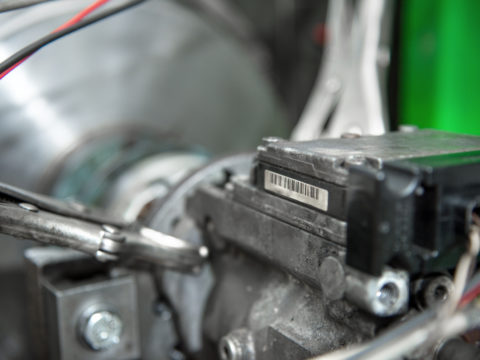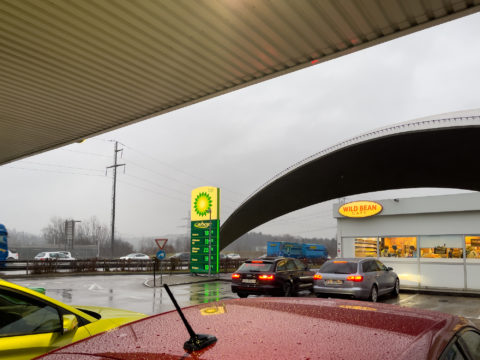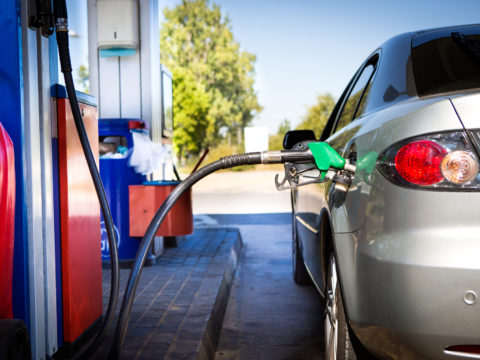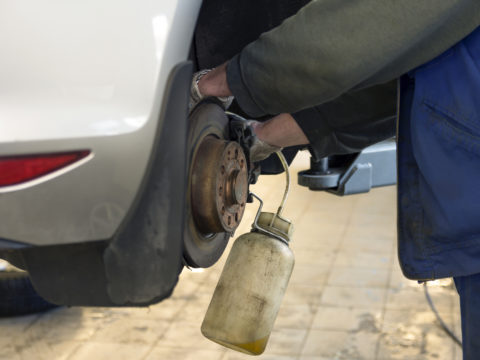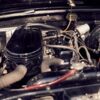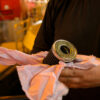Do you always have a car coolant in your vehicle, especially if you take long trips regularly? Some people actually use water to top up their coolants.
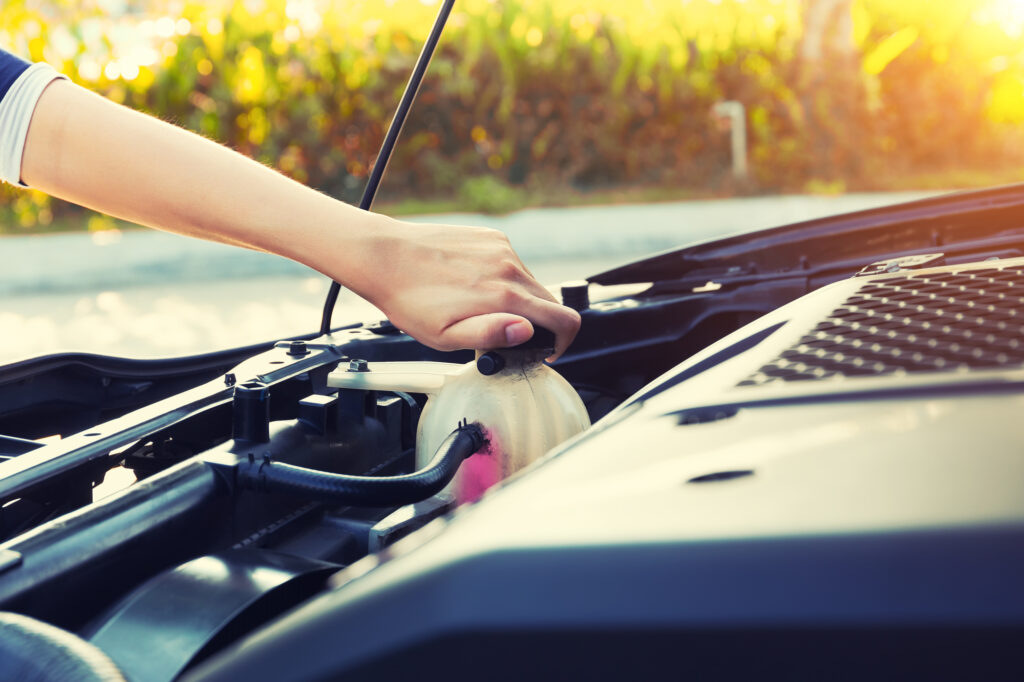
Is it okay to mix the coolant with water? Mixing water and coolant poses several risks that may have severe long-term implications, including corroding your engine, overheating, and overexerting the radiator.
Keep reading to find out and learn more about what happens if you mix water and a coolant.
Contents
What Is Coolant in a Car?
A car coolant is a liquid added to the engine to prevent it from overheating. This antifreeze liquid consists of water and ethylene glycol. However, some coolants have other additives that make them unique.
So, what exactly does the coolant do? When driving a car, the engine burns fuel to produce thermal energy. It then uses part of this energy to move the car forward while the remaining energy converts into heat.
The produced heat overworks the engine, leading to overheating. However, a coolant removes this excess heat and adds antifreeze protection to ensure the engine runs optimally.
Can You Mix Water With Coolant?
No, you shouldn’t mix water with coolant because water contains minerals that may build up inside your radiator, causing it to overheat.
Another reason you shouldn’t mix water with coolant is that some antifreeze liquids are already premixed. Adding water to the coolant will dilute it further, making it ineffective.
What Happens if You Mix Water and Coolant?
There are several effects of mixing water and coolant. Let’s discuss them in detail.
1. It Causes the Engine To Overheat
Mixing water and coolant causes the engine to overheat because it dilutes the coolant. As mentioned earlier, a coolant is water and ethylene glycol, usually premixed on a ratio of 1:1.
This combination implies that most coolant manufacturers mix similar quantities of water and ethylene glycol when manufacturing the antifreeze liquid.
Thus, adding water to the coolant disrupts this ratio and increases the water in the coolant, reducing the coolant’s freeze protection and causing the engine to overheat.
2. It Leads to Engine Corrosion
There are multiple causes of engine corrosion, and it takes time for one to notice. High-temperature corrosion is the leading cause of engine corrosion.
Oxidation usually occurs if your engine is very hot, causing it to rust. In other circumstances, high-temperature corrosion occurs due to increased friction. Ultimately, high-temperature corrosion leads to overheating.
Thus, besides cooling the engine, ethylene glycol prevents engine corrosion. However, mixing the coolant with water further dilutes this chemical, leading to engine corrosion after some time.
3. It Makes the Radiator Less Effective
The primary purpose of a car radiator is to cool the engine, making it part of the car’s cooling system. People usually add the coolant since it aids the radiator in cooling the car.
If you mix water and the antifreeze liquid, you may damage the radiator, especially using tap water, which contains calcium and magnesium.
These minerals usually build up in the radiator after a while, causing it to be less effective. Eventually, you will notice your engine becoming hotter than it should because the radiator is ineffective, leading to engine-related issues in the long run.
4. It Leads to Premature Water Pump and Heat Exchanger Failures
Tap water contains ions and large particulates of inorganic solids, contaminating your car’s cooling system. This contamination will eventually damage your vehicle’s water pump and heat exchanger.
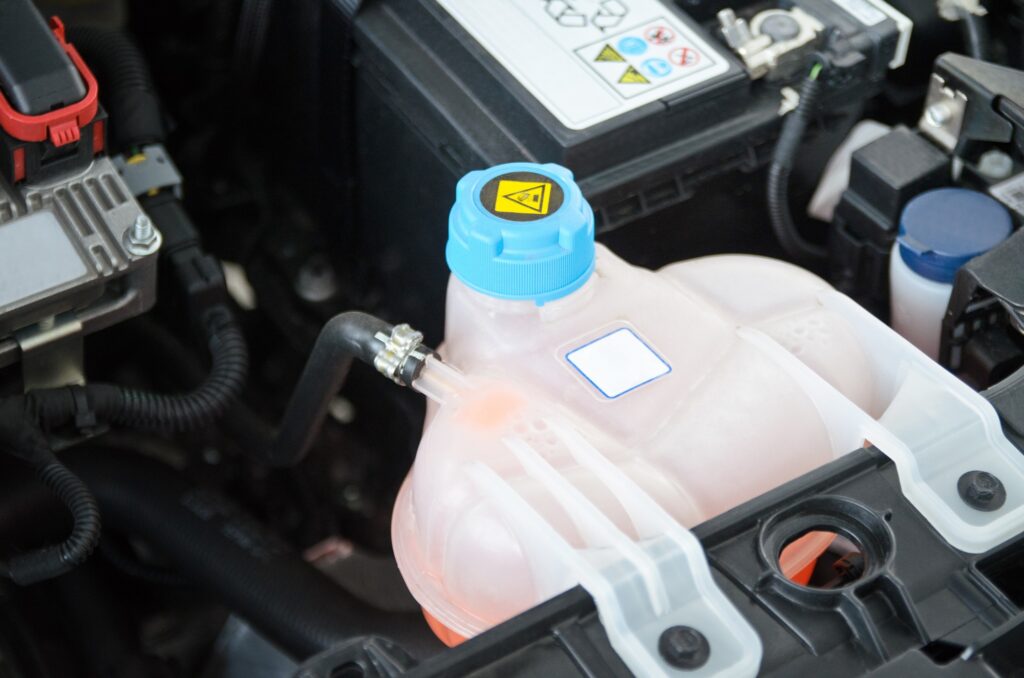
Can You Add Distilled Water to the Coolant?
Yes, you can add distilled water to the coolant. This water is different from regular water because it is pure and does not contain minerals. It implies that you do not have to worry about mineral contamination on your radiator.
To distill water yourself, boil water with a lid and collect the steam from the lid.
What About Bottled Water?
You should not mix bottled water with coolant because it may also contain minerals. If you want to use bottled water, ensure you are dealing with soft bottled water.
Otherwise, you risk the minerals in the bottled water corroding your engine.
Can You Use Water Instead of Coolant in Your Car?
No, you cannot use water instead of a coolant in your car because it does not cool your engine.
The water inside your engine will expand as your car’s engine temperature increases. Thus, if you put water inside an overheated engine instead of a coolant, it increases in volume, causing the engine block to crack.
Additionally, the water will freeze at 32 degrees Fahrenheit if you do not use a coolant, and this will damage the rubber hoses and eventually lead to engine failure.
Disadvantages of Using Water as Coolant
There are several disadvantages to using water as a coolant.
1. Not Suitable for Use Under Pressure
One of the shortcomings of using water as a coolant is that it is not suitable for use when your engine is hot and under pressure, and this is because water boils quickly, unlike antifreeze.
The engine temperature of all vehicles is higher than the boiling point of water. This implies that if you add water to an overheating engine, the water will quickly boil and evaporate, which doesn’t solve the cooling problem.
2. It Is Affected by External Temperatures
Another disadvantage of using water as a coolant is that it is affected by external temperatures. This is because the water inside the engine may freeze when the external temperatures are low, causing engine damage.
When the external temperatures are high, the water inside the engine will overheat and not cool the engine.
In contrast, a coolant has other chemicals that prevent water from freezing, especially in cold climates.
3. Pressurized Water Is Corrosive
As mentioned before, coolants contain corrosion lubricants, which are not present in water. Thus, using water as a coolant may lead to high-temperature corrosion due to the increased temperature and pressure.
Another thing to note is that since water is not a lubricant, it cannot reduce engine friction, which may lead to engine failure.
4. The Water Minerals Will Damage Your Engine
Since tap water contains minerals, they will build up in your engine after some time. These minerals will lift when driving the car due to the centrifugal force inside the engine, which may lead to engine damage. Avoid engine component replacement costs by using recommended coolants.

